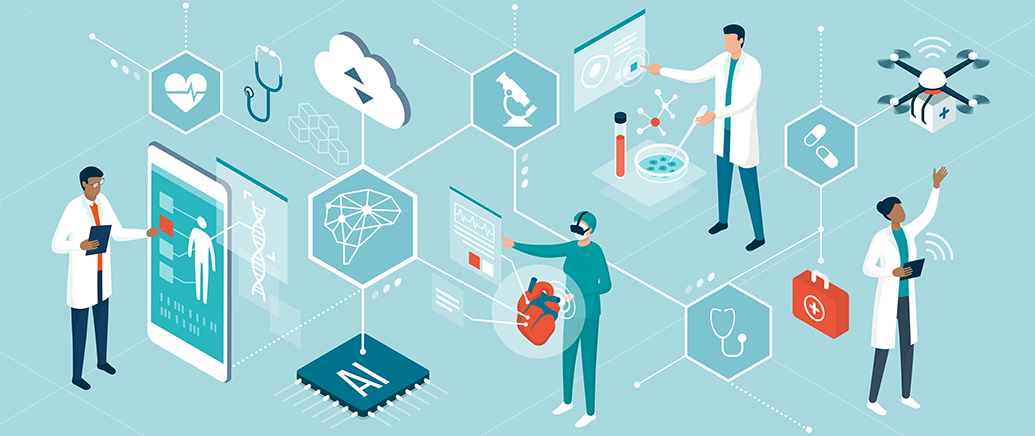
Blog | 7/17/2025
AI in Drug Discovery: What’s Real, What’s Coming, and Where the Opportunities Lie
By Daniela Hristova-Neeley, PhD, Anthony Hesser, PhD, Alexander George, PhD, Chris Wolfram, Nick McConnell, PhD and Catherine Shao PhD
AI is no longer an experimental tool in life science research - it’s embedded in the drug development workflows of many top pharma companies. But for executives building life science tools or AI platforms, the question isn’t whether AI will play a role in drug discovery, it’s where and how fast it will be adopted.
This blog explores the current state of AI in life science discovery research, where the field is headed, and what it means for those shaping the future of research tools and platforms.
From Hype to Assets - Drug Pipeline with Reported Use of AI/ML in Drug Discovery
Today, over 270 preclinical pipeline drugs have reported using AI/ML in research.
AI/ML tools are being applied across a range of early discovery tasks, including (but not limited to):
- Generating novel hits via generative chemistry
- Prioritizing candidates based on in vitro data and predicted bioavailability
- Predicting toxicity and PK/PD profiles using non-animal models
A Surge, Then a Shift Toward Platform Depth - Funding Trends
AI drug discovery funding has shown strong momentum, with year over year increases in the number of deals. While the number of deals has steadily increased, deal sizes have fluctuated, suggesting a shift toward more strategic and focused investments.
This trend reflects growing investor interest in AI platforms that offer:
- Proprietary datasets (e.g., high content imaging, patient-derived models)
- Integration of chemical, biological, and patient data
- Clear line of sight to drug development milestones
Notable examples of this shift include:
- BigHat Biosciences: minority investment from Eli Lilly and partnership to use BigHat’s AI/ML platform for antibody engineering and high-throughput synthetic biology wet lab workflows
- Isomorphic Labs (Alphabet): Built on AlphaFold, aiming to redesign biology-first pipelines, and has two large public partnerships with Novartis and Eli Lilly
- Insitro: Raised >$700M, combining human genetics with machine learning
- Recursion: IPO + $500M from Bayer and Roche, using high-content imaging and deep learning
Platform depth and translational potential have become key priorities for investors and pharma partners, and the highlighted companies reflect this shift in focus.
Today vs. 2030
AI adoption varies significantly across different stages of early-stage drug discovery. While small molecule discovery has seen the most traction, other areas are rapidly catching up as data quality improves and AI models become more sophisticated.
Use cases are expected to have different development inflection points based on the complexity of the underlying models. The shift from point solutions to integrated, multi-modal platforms will be key to unlocking broader adoption.
- Drug discovery & optimization: One of the most mature applications of AI is in hit generation and lead optimization. Small molecules, antibodies, and nucleic acid sequences can now be computationally designed, with greater use for small molecules due to decades of structure-activity relationship (SAR) data and lower modeling complexity.
- Target/biomarker discovery & validation: AI tools are already used to mine omics data and identify patterns indicative of a potential drug target or biomarker signature. Additional development should enable the integration of more complex datasets (e.g., single cell and spatial omics, multiomics, high content imaging) to uncover additional signatures.
- Safety & efficacy prediction: Most existing tools are calibrated for small molecules, with limited predictability for biologics. As 3D culture systems and organoids gain adoption and generate data, AI models will access richer training data to improve their predictive power and relevance to regulatory authorities.
- Drug candidate prioritization: Current applications use in vitro or structural data, but biopharma is looking to use more advanced tools that integrate multimodal datasets consisting of structure, omics, animal, and human clinical data to support a more holistic, mechanism-aware decision.
What’s Driving the Shift?
Several forces are accelerating AI’s integration into life science research:
- Data readiness: Richer omics datasets and better curation practices
- Regulatory evolution: FDA’s initiative to reduce and replace animal testing
- Proof points: Growing case studies and clinical-stage assets
- User expectations: AI must now deliver non-obvious insights, not just summaries
Implications for Life Science Tools and AI Companies
If you’re a tools company:
- AI workflows demand high-resolution, multiplexed, and context-rich data
- There is a premium on annotated, structured, and AI-ready data sets
- Instruments must now “talk to” the AI - not just produce raw data
If you’re an AI company:
- Standalone models aren’t enough - pharma wants integrated platforms
- Interpretable outputs and regulatory-compliant traceability are essential
- Strategic partnerships (e.g., NVIDIA’s BioNeMo with Amgen and Genentech) are key to validation
Conclusion: The Next 3-5 Years Are Critical
The AI shift in biopharma discovery is real. The winners won’t just have better algorithms; they’ll own differentiated data, integrate deeply into biology, and reduce time to IND in measurable ways. For AI and life sciences tool providers, the next few years are critical for securing a lasting position in the ecosystem.

